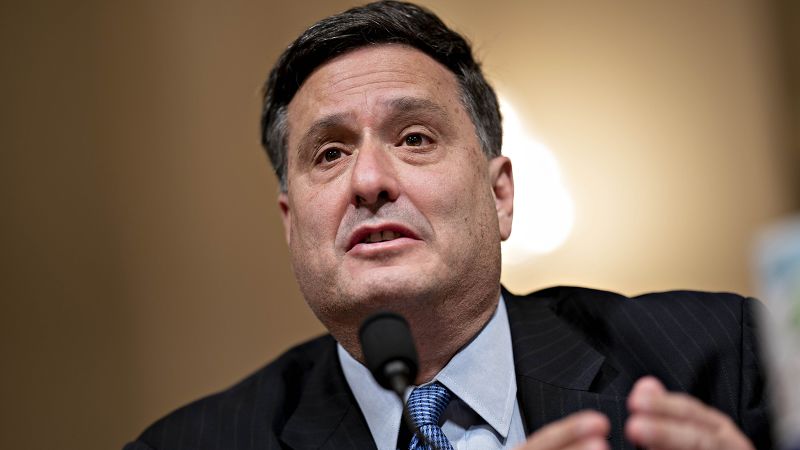In a significant development regarding the political landscape surrounding former President Joe Biden, Ron Klain, who served as Biden’s chief of staff during his initial two years in office, conveyed to the House Oversight Committee insights shared with him by influential figures like former National Security Adviser Jake Sullivan and former Secretary of State Hillary Clinton. These discussions reportedly took place in the latter parts of 2023 and extended into 2024. According to two sources familiar with the matter, both Sullivan and Clinton expressed apprehensions about Biden’s prospects in the political arena, notably hinting at the “political viability” of his candidacy.
One source indicated that Klain relayed to the committee that Clinton and Sullivan approached him with concerns regarding Biden’s candidacy, particularly in light of his age. However, another source contested this characterization, arguing that Klain mentioned Clinton’s specific concern about the campaign’s inadequacy in addressing the age issue prevalent in the political discourse surrounding Biden. Indeed, Clinton’s remarks reportedly highlighted that the campaign was faltering in dealing with the narrative emerging from Biden’s age-related vulnerabilities.
Klain recounted a notable incident in 2023 during which he pointed out that Sullivan had observed Biden losing support, especially following a less-than-stellar performance during a CNN Presidential Debate held in June. This event intensified existing doubts about Biden’s mental acuity and raised questions regarding his effectiveness as a candidate. The discussion underscores a growing concern among high-ranking Democrats about Biden’s electability and fitness for office amid increasing scrutiny of his age and cognitive sharpness.
Despite his pivotal role within the Biden administration, Klain’s observations are critical, as he served in a capacity that offered him a unique vantage point into the inner workings of the White House. A significant detail to note is that Clinton has distanced herself from the operational aspects of Biden’s administration, reiterating that her comments stemmed from a place of concern regarding political strategy rather than personal attacks on Biden’s capabilities.
Sullivan’s spokesperson, Adrienne Watson, denied the account suggesting that Sullivan engaged in discussions with Klain about Biden’s potential run for the presidency prior to the debate. This discrepancy between Klain’s account and Sullivan’s response indicates a complex web of communication and interpretation surrounding Biden’s candidacy that may reflect broader discomfort within the Democratic Party regarding the current state of leadership.
Moreover, Klain reportedly asserted to the committee that he believed Biden retained the mental acuity to serve as the president. However, he acknowledged areas of concern, noting Biden’s energy levels appeared diminished, and he demonstrated forgetfulness, often confusing names and proper nouns. These concerns were amplified during the lead-up to the CNN debate, where Biden appeared especially fatigued, prompting increased scrutiny from both political adversaries and allies.
The House Oversight Committee, led by Republican members, has been actively pursuing interviews with former aides of Biden and the President’s physician, although the latter has thus far opted to refrain from responding to queries regarding Biden’s health and cognitive status.
As public discourse around Biden’s age and cognitive fitness intensified, particularly following consequential events like the CNN debate, these discussions reached a boiling point that, according to various reports, ultimately led to Biden’s decision to withdraw from the race, allowing then-Vice President Kamala Harris to step into the nomination position for the Democrats. High-profile figures, including Clinton, rallied behind Harris in the wake of Biden’s exit, reflecting a shift in the Democratic Party’s position towards the 2024 election.
Recent reports and analyses suggest that Biden’s cognitive decline might be more significant than previously acknowledged, with former aides experiencing firsthand instances of his forgetfulness and incoherence during critical moments of his presidency. These issues reportedly persisted even as Biden conducted his reelection bid, prompting alarm among Democratic officials and donors, though many chose to remain silent in opposition to his candidacy.
Overall, the atmosphere surrounding Biden’s presidency and reelection bid reveals a troubling mixture of self-interest, political maneuvering, and fear among Democratic allies concerning the prospect of a polarized electorate and the potential of Donald Trump returning to the Oval Office. This dynamic raises essential questions about the implications of leadership choices and the health of democratic representation in the modern political climate. CNN’s Kaanita Iyer contributed valuable insights into this intricate narrative, emphasizing the complexities of navigating such significant concerns within the political sphere.











